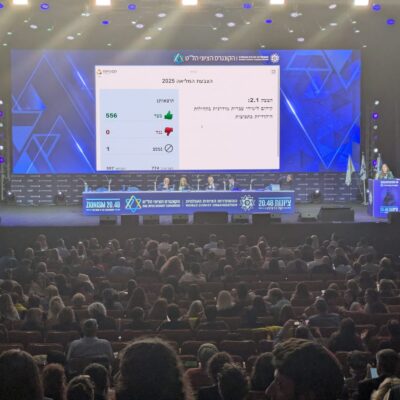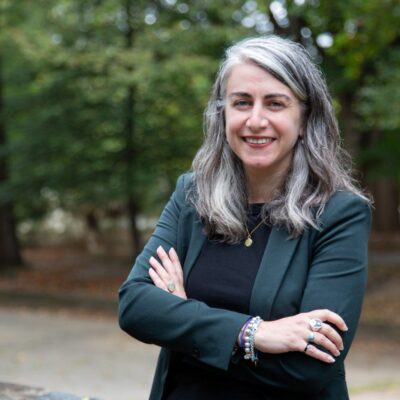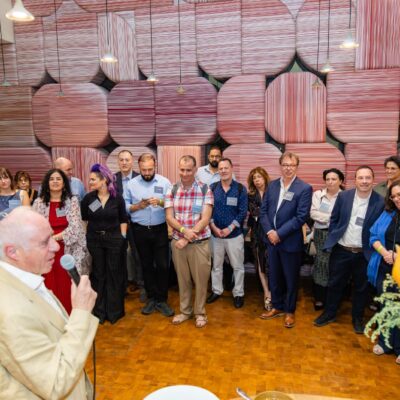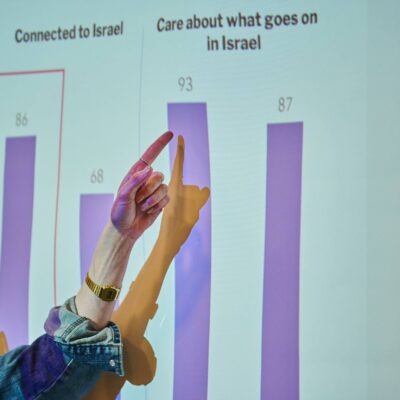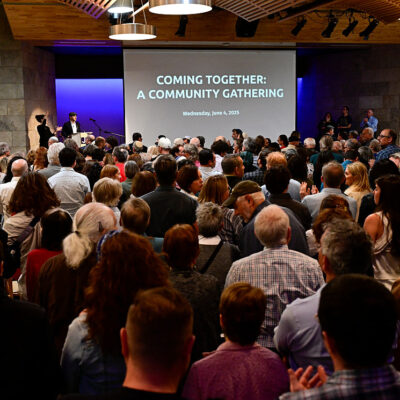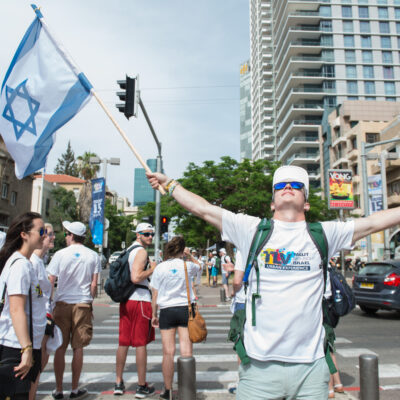WHAT YOU SHOULD KNOW
The highest ideals and pettiest politics of the World Zionist Congress
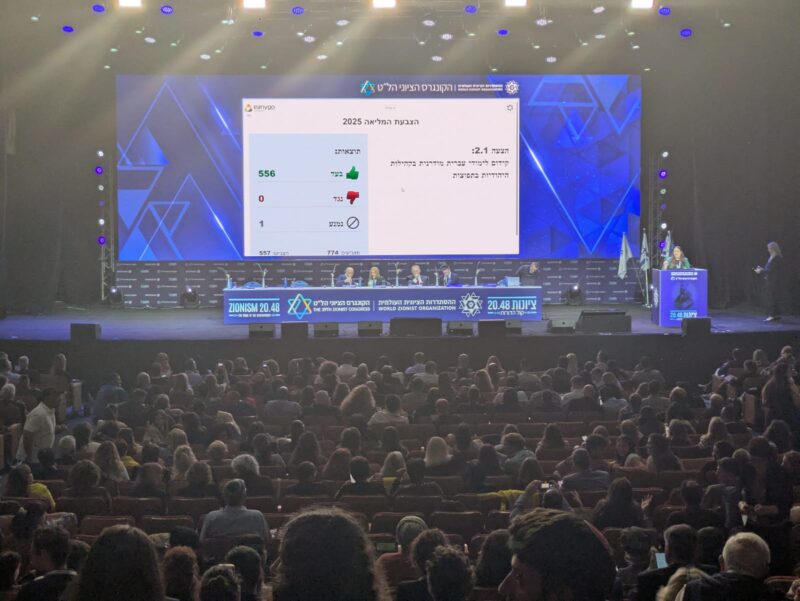
Judah Ari Gross/eJewishPhilanthropy
Delegates vote in the 39th World Zionist Congress in Jerusalem on Oct. 29, 2025.
Some of the highest ideals and pettiest politics of the World Zionist Congress were on display yesterday at the so-called “parliament of the Jewish people,” as the various factions were on the brink of a power-sharing agreement, which fell apart hours after it was announced over the proposed appointment of the Israeli prime minister’s oft-combative son to a senior ranking position in the World Zionist Organization.
The intention to place Yair Netanyahu, one of the most divisive figures in Israeli politics, at the head of a WZO department was deemed an absolute nonstarter by the centrist Yesh Atid party and the Conservative movement, which had led the negotiations for the center-left bloc.
“The proposed appointment of Yair Netanyahu is unacceptable,” WZO Vice Chair Yizhar Hess, of the Conservative movement’s Mercaz Olami party, said in a statement today. “We will only sign an agreement that is balanced and unites Israel and the Jewish people. A deal that hands Yair Netanyahu any position in the national institutions is clearly not that and is not an option. We and our partners continue to work including throughout last night to shape a balanced final agreement that reflects our values.”
For his part, Culture Minister Miki Zohar, who led negotiations for the center-right bloc and proposed Yair Netanyahu for the role, rejected the center-left’s criticism as hypocritical in light of past nepotism and cronyism by left-wing officials.
Though the negotiating teams resumed their work this morning, as of this writing, the congress is left in limbo, without a coalition agreement to determine who leads and controls the sizeable budgets of the so-called National Institutions: Keren Kayemeth LeIsrael-Jewish National Fund, which controls more than 10% of the land of Israel; Keren Hayesod, a major international fundraising organization; the Jewish Agency for Israel, which oversees immigration to Israel and runs education programs around the world, among other things; and the WZO, which supports Zionist initiatives in Israel and the Diaspora.
The deal collapsed as hundreds of delegates gathered yesterday in the main auditorium of the Jerusalem International Convention Center, colloquially known as Binyanei Ha’Uma, the “buildings of the nation.” Inside, the more than 700 delegates voted on a range of resolutions and constitutional amendments, from banal affirmations of the importance of Hebrew education and unanimous agreements about the need to address Israel’s mental health crisis to more controversial topics like a call to allocate WZO resources toward strengthening ties to Christian Zionists (which failed to pass) and a statement opposing a Knesset bill that would heavily tax foreign government funding of Israeli nonprofits (which did pass).
Most of these resolutions are symbolic (if you’re generous) or meaningless and performative (if you’re not), though some do carry financial significance, such as a ban on the WZO supporting, financially or otherwise, Jewish resettlement of Gaza — though this too prevented something that was not in the works anyway.
The votes, which were scheduled for Thursday, were moved up a day so as not to coincide with a planned mass rally by Haredim against military enlistment. As news entered the hall that the coalition deal had dissolved, a new resolution was proposed and passed to halt the proceedings and extend the congress by two weeks to allow for further negotiations.
The juxtaposition of the coalition agreement falling apart primarily due to internal Israeli politics while mostly Diaspora Jews voted on largely declaratory gestures exposed the unfulfilled potential of the World Zionist Congress.
For Israelis, the significance of the National Institutions is overwhelmingly — almost solely — practical. It is the land they control, the money they have and the jobs within them that can be awarded to political allies and supporters.
For Diaspora Jews, the World Zionist Congress offers a rare venue where they can freely and passionately debate issues related to Israel and Zionism, without consideration for communal unity or the politeness that is expected back home. It is also of practical significance, but one based more on values and high ideals, rather than quotidian concerns.
“For the Israelis, it’s more practical or transactional. They have a different Zionist reality than we do in the Diaspora,” Hebert Block, the executive director of the American Zionist Movement, told eJP today. “People from the Diaspora come in with aspirational goals for what the direction of the congress and the Zionist movement should be. They also come in excited about the opportunity to meet and connect with Zionists from around the world.”
Block lamented that the congress ended “abruptly and chaotically,” late at night, after hours of voting and arguing. Exhausted, most delegates headed straight to their hotel rooms, with little mingling afterward. As the congress is technically not yet over, there was no closing plenary to round things out.
“They didn’t have a chance to have their goodbyes with people,” Block said. “It’s unfortunate.”
When the dust settles and a deal is eventually struck, both sides of the Israel-Diaspora equation would do well to learn from one another, for those in Israel to embrace the wonder and power of Jewish Peoplehood — and not just the power of the purse — and for those abroad to think far more seriously about how the National Institutions can further their agendas, beyond rhetoric.

 Add EJP on Google
Add EJP on Google